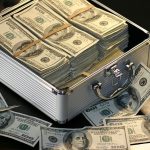Two groups of option writers
It is usual to distinguish between two groups of writers of call options:
1. Writers who do not possess the underlying asset (“uncovered writers”).
2. Writers who possess the underlying asset (“covered writers”).
- The underlying asset in our examples is a house.
Uncovered writers
Their motive in writing an option is mostly speculative, in the expectation of a fall in house prices by the expiry date, and then they will earn the premium, and if house prices rise – the increase will be small and will not eat up the premium entirely. A misjudgement will, as we have seen, cost them dearly. Option writers obviously are aware of this risk and take this risk into account.
Covered writers
Three reasons can be identified for investors writing a covered option
1. Selling a house at a high price (main reason).
2. Receiving an ongoing income from premiums (main objective), whilst being prepared to sell the house at a high price.
3. Speculation.
The First two reasons are solid ones, and do not entail any risk on the part of the writers.
Selling a house for a high price (main purpose)
Let us assume that you bought a house last year for $90K, and house prices are now at $100K, you have already made a profit of $10K. If selling the house at a profit of $18K seems reasonable to you, you could write a Call option, for example $108K C H. Assume the premium is $2K. If prices go up past $108K, the option will be exercised by whoever bought the option (since it is worthwhile for him to exercise it), and you will receive $110K for the house. ($108K from the option being exercised +$2K for the premium), and your total profit will be $20K ($110K-$90K).
In fact, the selling price of the house is made up of two components:
1. The exercise price.
2. The premium received.
If, for example, selling the house for $106K is sufficient for you (gives you a profit of $16K), then you can write a call option with an exercise price of less than $106K, on the condition that the premium you receive for writing the option makes the price up to $106K.
For example, you can write a call option with an exercise price of $104K. if the premium for it is $2K you receive a total profit of $106K.
Or write an option with an exercise price of $102K. If the premium is $4K You receive a total profit of $106K.
If you wrote an option for $106K, for a premium of $2K, and house prices do not reach $106K, you are left with the house in your possession, and also would have made of profit of $2K on the premium!
Of course, if house prices rise to $150K, your profit will be only $16K, since you were forced to sell the house on the exercise of the option for $104K + the premium you received of $2K, whereas if the house had remained in your possession you could have made $60K ($150K – $90K). Hard luck!
Ongoing income from premiums (main reason)
The explanation for this case is similar to the previous example of selling a house for a high price, except that if your motivation for selling the house is less powerful, you can act as follows:
1. Write an option with a higher exercise price, for example “$110k C H”
2. The purpose of writing the option is to receive the premiums. The option writer’s expectation is that by the expiry date, the market prices of the houses will not reach the exercise price stated on the option written. However, if prices reach the exercise price, he is psychologically ready to sell the house at the higher price, even though he intended to receive ongoing premiums. The lower his motivation to sell the house, the higher will be the exercise price of the option and with a shorter expiry date.
Speculation: As explained for uncovered option writers.
Writers of covered options are prepared to accept a limited profit, but one which is certain. They are aware that in some cases, house prices will continue to rise by another 5%, 10% or 20%, and they will be disappointed by such a price hike. But disappointments are part of life.
For example:
You sold your house and later the price went up.
You bought a house and the price collapsed immediately afterwards.
You decide not to buy a house, and prices sky-rocket.
Over time, an ongoing small, safe income could give you a higher profit that you would attain from the “disappointments”, which tend to be rare.








